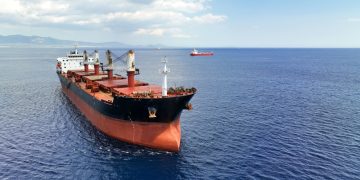Spain announced that it will construct the second-largest marine national park in the Mediterranean, turning the Cabrera National Park area nine times larger and taking the total area protected to 90,794 hectares. The park, located south of Mallorca, will offer legal protection for marine life that is threatened, such as corals, dolphins and whales.
The National Park of the Cabrera Archipelago was first created in 1991 and is the only one Spain has in the Mediterranean Sea. After Spain’s announcement, the amount of marine area protected within Spain’s National Parks rose from 4% to 23%.
[smlsubform prepend=”GET THE SAFETY4SEA IN YOUR INBOX!” showname=false emailtxt=”” emailholder=”Enter your email address” showsubmit=true submittxt=”Submit” jsthanks=false thankyou=”Thank you for subscribing to our mailing list”]
Oceana has been trying to expand the park from 2007 when the marine conservation organisation made its first of six expeditions to study the area’s deep-sea waters and marine life.
Following, in 2013, Oceana joined Cabrera’s board of trustees, whereas in 2017, achieved a parliamentary consensus in Spain, according to which almost all the political parties in Congress and all of those in the Senate supported the expansion of the park.
The decade-long environmental campaign has been made possible thanks to the financial support of the European Commission, Adessium Foundation, Robertson Foundation, Third Millenium Foundation, Govern Balear, Fundación Biodiversidad and Spain’s Ministry of Environment.
Ricardo Aguilar, Research and Expeditions Director at Oceana in Europe commented that
Today will be a great day for the Mediterranean and for international ocean conservation. Cabrera National Park is home to a huge diversity of ecosystems and marine life, and is a perfect example of the underwater natural heritage that we want to keep for generations to come.
He continued stating that he hopes more countries will follow the steps of Spain, in supporting their marine ecosystems.
Also, Marta Carreras, marine scientist at Oceana stated that it’s the first time that Spain offers the maximum legal protection to deep-sea corals and to areas home to marine mammals such as sperm whales and dolphins, to yellow tree corals, and to large fish like bluefin tuna, among others.
Oceana continues to campaign to increase the marine area of other Spanish National Parks, including the declaration of the first exclusively marine National Park in El Hierro (Canary Islands) and the expansion of the marine area of Doñana (Andalusia).


































































